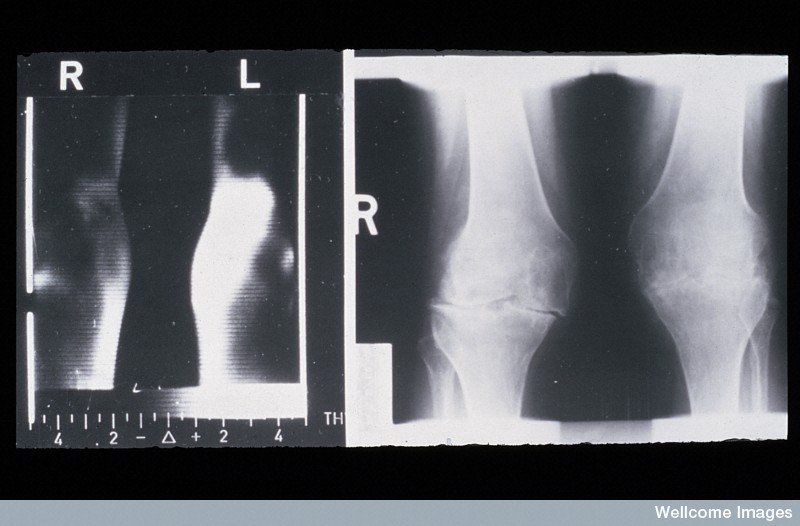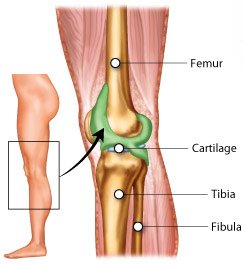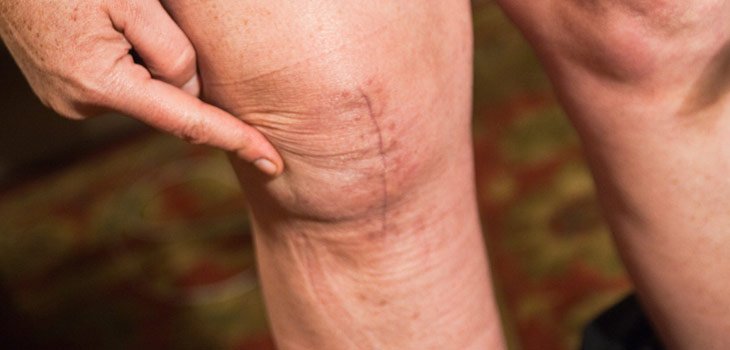Protecting Knees from Arthritis: Your Blueprint for Strong, Pain-Free Joints! Arthritis can be a real pain in the knees, but here’s the good news: you have the power to fight back and keep your knees healthy. In this guide, we’re sharing simple yet effective strategies to help you safeguard your knees from arthritis. Get ready to reclaim pain-free movement and enjoy life to the fullest
Table of Contents
What is arthritis?
Arthritis is a common condition that affects millions of people worldwide. It is characterized by inflammation and stiffness in the joints, particularly in the knees. The condition can cause pain, swelling, and difficulty in movement, making it challenging for individuals to carry out daily activities. Arthritis can be caused by various factors, including age, genetics, obesity, and previous joint injuries. It is important to understand the causes and symptoms of arthritis to take appropriate measures to protect the knees and manage the condition effectively.
Types of arthritis
There are several types of arthritis that can affect the knees. The most common type is osteoarthritis, which occurs when the protective cartilage in the knee joint wears down over time. Rheumatoid arthritis is another type that can cause inflammation and damage to the knee joint. Other types of arthritis that can affect the knees include gout, psoriatic arthritis, and reactive arthritis. It is important to understand the specific type of arthritis affecting the knees in order to determine the most appropriate treatment and management strategies.
Impact of arthritis on knees
Arthritis can have a significant impact on the knees, causing pain, stiffness, and reduced mobility. The condition can lead to the breakdown of cartilage in the joints, resulting in bone-on-bone contact and further damage. This can make simple tasks such as walking or climbing stairs challenging and can greatly affect a person’s quality of life. It is important to take steps to protect the knees from arthritis, such as maintaining a healthy weight, engaging in regular exercise, and avoiding activities that put excessive stress on the joints. Additionally, using proper footwear and practicing good posture can help alleviate strain on the knees and reduce the risk of developing arthritis or worsening existing symptoms.
Protecting Knees from Arthritis
Protecting your knees from arthritis is a proactive approach to maintaining a pain-free and active lifestyle. Arthritis in the knees can lead to stiffness, discomfort, and reduced mobility, but there are steps you can take to mitigate the risk. Regular exercise, especially activities that strengthen the muscles around the knee joint, can provide crucial support. Additionally, maintaining a healthy weight helps reduce the load on your knees, which can lower the likelihood of arthritis development. Dietary choices, such as incorporating anti-inflammatory foods and essential nutrients, can also play a role in preserving knee joint health. By adopting these preventative measures, you can take charge of your knee health and enjoy a more comfortable and active future.
Prevention

Maintaining a healthy weight
Maintaining a healthy weight is crucial for protecting knees from arthritis. Excess weight puts added pressure on the joints, causing wear and tear over time. By maintaining a healthy weight, individuals can reduce the strain on their knees and lower the risk of developing arthritis. Regular exercise, along with a balanced diet, can help in achieving and maintaining a healthy weight. It is important to engage in activities that are low impact and gentle on the joints, such as swimming or cycling. Additionally, incorporating foods rich in nutrients and antioxidants, such as fruits and vegetables, can support joint health and reduce inflammation. By prioritizing weight management, individuals can take proactive steps towards protecting their knees from arthritis and maintaining overall joint health.
Regular exercise
Regular exercise is crucial for protecting knees from arthritis. Engaging in physical activity helps to strengthen the muscles around the knee joint, providing better support and stability. It also helps to maintain a healthy weight, reducing the stress on the knees. Additionally, regular exercise promotes flexibility and range of motion, which can help prevent stiffness and improve overall joint health. Whether it’s low-impact activities like walking or swimming, or more intense workouts like cycling or running, incorporating regular exercise into your routine is essential for keeping your knees strong and healthy.
Protective gear for physical activities
Protective gear plays a crucial role in safeguarding our knees during physical activities. Whether it’s running, hiking, or playing sports, wearing the right protective gear can help prevent injuries and reduce the risk of developing arthritis. Knee braces, knee pads, and compression sleeves are some of the commonly used protective gear that provide support and stability to the knees. These gear not only protect the knees from impact and excessive strain but also help in maintaining proper alignment and reducing stress on the joints. Investing in high-quality protective gear is essential for anyone who wants to keep their knees healthy and arthritis-free.
Diet and Nutrition

Foods that promote joint health
Maintaining joint health is crucial for preventing and managing arthritis. One way to promote joint health is through a balanced and nutritious diet. Certain foods have been found to have properties that support the health and function of our joints. These include omega-3 fatty acids found in fatty fish like salmon and sardines, which have anti-inflammatory effects. Additionally, foods rich in antioxidants such as fruits and vegetables can help reduce inflammation and oxidative stress in the joints. Including foods like nuts, seeds, and whole grains in your diet can also provide essential nutrients like vitamin E, which has been associated with improved joint health. By incorporating these foods into your diet, you can help protect your knees and promote overall joint health.
Anti-inflammatory diet
An anti-inflammatory diet is a key component in protecting knees from arthritis. This type of diet focuses on consuming foods that help reduce inflammation in the body, which can help alleviate symptoms and slow down the progression of arthritis. Foods rich in omega-3 fatty acids, such as fatty fish, walnuts, and flaxseeds, are known for their anti-inflammatory properties. Additionally, incorporating plenty of fruits and vegetables, especially those high in antioxidants like berries and leafy greens, can provide the body with essential nutrients and help combat inflammation. Avoiding processed foods, sugary drinks, and excessive alcohol consumption can also contribute to maintaining healthy knees. By following an anti-inflammatory diet, individuals can take proactive steps to protect their knees and promote overall joint health.
Supplements for joint health
Supplements for joint health play a crucial role in protecting knees from arthritis. These dietary supplements are specifically formulated to provide essential nutrients and support the overall health of the joints. Popular supplements such as glucosamine, chondroitin, and omega-3 fatty acids have been shown to reduce inflammation, improve joint flexibility, and promote cartilage repair. Including these supplements in your daily routine can help maintain the integrity of your knees and reduce the risk of developing arthritis. However, it is always recommended to consult with a healthcare professional before starting any new supplement regimen.
Exercise and Stretching

Low-impact exercises for knee health
Low-impact exercises are a great way to maintain knee health and prevent the onset of arthritis. These exercises put less stress on the joints, making them suitable for individuals with knee problems or those looking to protect their knees. Some examples of low-impact exercises include swimming, cycling, yoga, and walking. These activities help improve flexibility, strengthen the muscles around the knees, and promote overall joint stability. Incorporating these exercises into a regular fitness routine can contribute to long-term knee health and reduce the risk of developing arthritis.
Stretching exercises for knee flexibility
Stretching exercises play a crucial role in maintaining knee flexibility and preventing arthritis. These exercises help to improve the range of motion in the knee joint, reduce stiffness, and increase overall flexibility. Some effective stretching exercises for the knees include quadriceps stretches, hamstring stretches, calf stretches, and IT band stretches. It is important to perform these exercises regularly and properly to maximize their benefits. By incorporating stretching exercises into your daily routine, you can protect your knees from arthritis and ensure better knee health in the long run.
Strength training for knee stability
Strength training is an essential component of maintaining knee stability and preventing arthritis. By engaging in regular strength training exercises, individuals can strengthen the muscles surrounding the knee joint, providing additional support and stability. Exercises such as squats, lunges, and leg presses target the quadriceps, hamstrings, and glutes, which are crucial for knee stability. Additionally, incorporating exercises that focus on balance and proprioception can help improve joint awareness and reduce the risk of injury. It is important to consult with a healthcare professional or a qualified trainer to develop a personalized strength training program that suits individual needs and abilities. By prioritizing strength training, individuals can take proactive steps to protect their knees from arthritis and maintain optimal joint health.
Proper Footwear

Orthotic inserts for knee support
Orthotic inserts are a popular option for providing additional support and stability to the knees. These inserts are specially designed to fit inside the shoes and help distribute the weight evenly, reducing stress on the knee joints. By providing proper alignment and cushioning, orthotic inserts can help alleviate pain and discomfort associated with arthritis. They can also help improve the overall function of the knees, allowing individuals to engage in physical activities with less risk of injury. Orthotic inserts are available in various shapes and sizes to accommodate different foot types and conditions. It is important to consult with a healthcare professional to determine the most suitable orthotic inserts for individual needs and to ensure proper fitting and effectiveness.
Avoiding high heels and unsupportive footwear
One important way to protect your knees from arthritis is by avoiding high heels and unsupportive footwear. High heels can put excessive pressure on the knees and increase the risk of developing arthritis. Opt for shoes that provide proper support and cushioning to help distribute the weight evenly and reduce strain on the knees. Look for shoes with a low heel or flat sole and a supportive arch. Additionally, consider using shoe inserts or orthotics to provide extra support and stability. By choosing the right footwear, you can reduce the stress on your knees and lower the chances of developing arthritis.
Injury Prevention

Proper warm-up and cool-down
Proper warm-up and cool-down are essential for protecting knees from arthritis. Before engaging in any physical activity, it is important to spend a few minutes warming up the muscles and joints. This can include light stretching exercises and gentle movements to increase blood flow and flexibility. Similarly, after completing the activity, a proper cool-down routine should be followed to help reduce muscle soreness and prevent injury. This can involve gentle stretching and relaxation exercises. By incorporating a thorough warm-up and cool-down into your exercise routine, you can help prevent knee arthritis and maintain healthy joints.
Avoiding repetitive stress on knees
To protect your knees from arthritis, it is important to avoid repetitive stress on them. Repetitive stress can cause wear and tear on the joints, leading to the development of arthritis over time. One way to avoid this is by practicing proper body mechanics and using correct form when engaging in activities that put strain on the knees, such as running or jumping. It is also important to listen to your body and take breaks when needed, as overuse can exacerbate knee pain and increase the risk of arthritis. Additionally, maintaining a healthy weight can help reduce stress on the knees, as excess weight puts added pressure on the joints. By being mindful of these strategies, you can take proactive steps to protect your knees from arthritis and maintain their long-term health.
Using proper techniques during physical activities
Using proper techniques during physical activities is crucial for protecting your knees from arthritis. Whether you’re running, jumping, or engaging in other high-impact exercises, it’s important to maintain proper form and alignment. This includes wearing appropriate footwear, warming up before exercise, and avoiding sudden changes in intensity. Additionally, listen to your body and avoid pushing yourself too hard, as overexertion can lead to knee injuries and increase the risk of developing arthritis. By practicing proper techniques, you can reduce the strain on your knees and promote long-term joint health.
